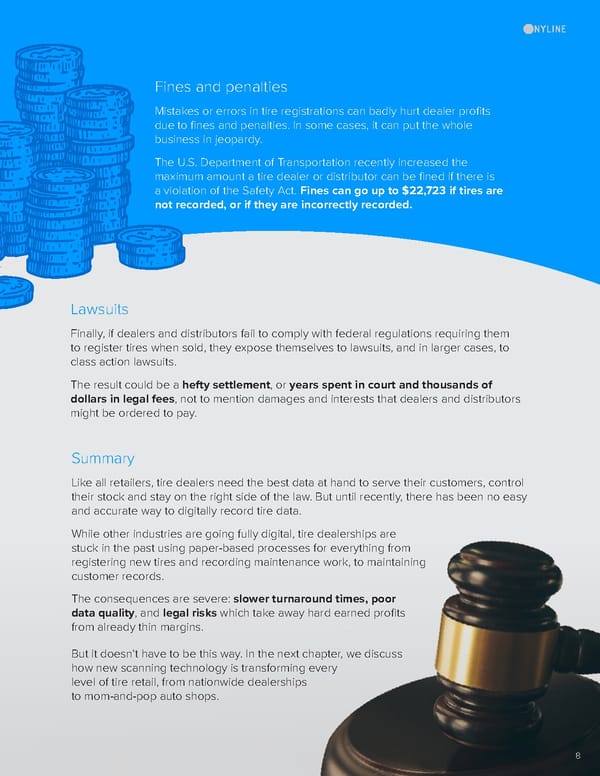8 Lawsuits Finally, if dealers and distributors fail to comply with federal regulations requiring them to register tires when sold, they expose themselves to lawsuits, and in larger cases, to class action lawsuits. The result could be a hefty settlement , or years spent in court and thousands of dollars in legal fees , not to mention damages and interests that dealers and distributors might be ordered to pay. Fines and penalties Mistakes or errors in tire registrations can badly hurt dealer profits due to fines and penalties. In some cases, it can put the whole business in jeopardy. The U.S. Department of Transportation recently increased the maximum amount a tire dealer or distributor can be fined if there is a violation of the Safety Act. Fines can go up to $22,723 if tires are not recorded, or if they are incorrectly recorded. 8 Summary Like all retailers, tire dealers need the best data at hand to serve their customers, control their stock and stay on the right side of the law. But until recently, there has been no easy and accurate way to digitally record tire data. While other industries are going fully digital, tire dealerships are stuck in the past using paper-based processes for everything from registering new tires and recording maintenance work, to maintaining customer records. The consequences are severe: slower turnaround times, poor data quality , and legal risks which take away hard earned profits from already thin margins. But it doesn’t have to be this way. In the next chapter, we discuss how new scanning technology is transforming every level of tire retail, from nationwide dealerships to mom-and-pop auto shops.
 Tire Services eBook Page 7 Page 9
Tire Services eBook Page 7 Page 9